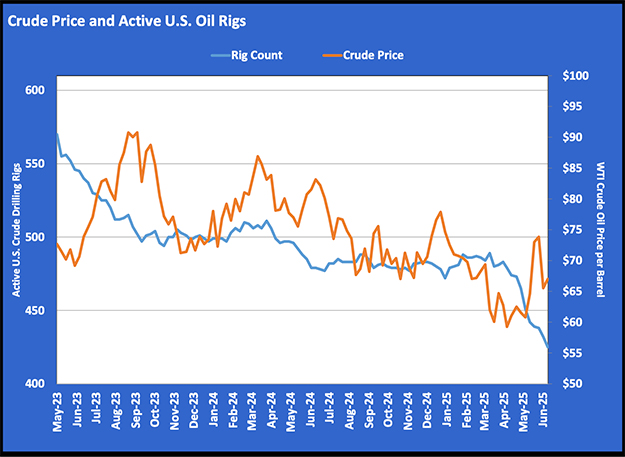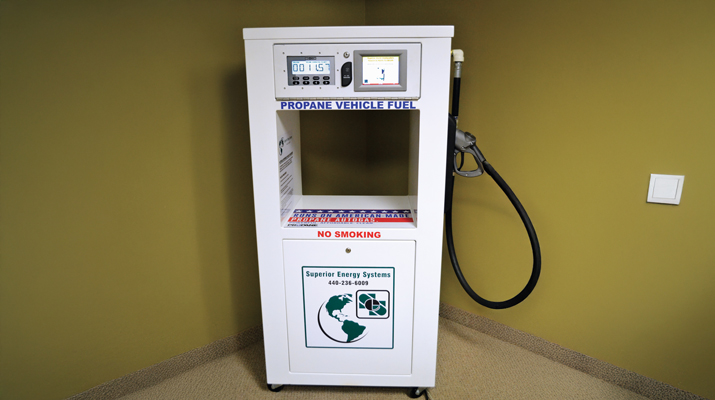Former high jumper sets sights on autogas market growth
Setting the bar high is no cliché for Steve Whaley. He did exactly that as a high jumper at Virginia Tech, and he’s doing that now as the director of autogas business development at the Propane Education & Research Council (PERC).

Whaley
“It’s been really helpful in business to learn how to set the bar right for success,” says Whaley, who joined PERC early this year.
In some ways, the council is already setting the bar for Whaley, making growth in the autogas market part of its 2020-22 strategic plan. But the excitement in Whaley’s voice tells you he’s prepared to pursue a personal best in a longstanding market still brimming with potential.
Career stops at Blossman Gas, Alliance AutoGas and Roush CleanTech allowed Whaley to gain autogas market experience. With Blossman and Alliance AutoGas, beginning in 2006, he pushed on- and off-road engine platforms, helping fleets set up refueling infrastructure and long-term contracts “because it was all about saving money,” he says. With Roush, he targeted larger, national fleets with an emphasis on logistics, linens and landscape applications.
Whaley later worked on the natural gas side of the alternative fuel industry to push fuel volumes through heavy-duty trucks.
“Tucker brought me back over to the light,” says Whaley, referring to PERC President and CEO Tucker Perkins.
Now Whaley plans to help more propane marketers see the light of fueling their own fleet vehicles with autogas.
Industry adoption
With Blossman Gas’ vast fleet of propane-fueled vehicles, Whaley thought it was commonplace while with the company for marketers to power their own vehicles with autogas. It wasn’t until he gained more of a national view of the propane industry that he realized Blossman was an exception to the rule.
“Industry adoption is critical,” says Whaley. “It’s not just common sense, but it’s also critical for the right kind of evangelism that needs to go out.”
Whaley and his team at PERC are attacking the autogas market methodically and with data. Its latest annual propane sales report survey included questions about marketers’ use of autogas in their fleet vehicles. The council is also strengthening its connection to top vehicle solution providers and outlining for marketers the products available to the industry.
Benchmarking is one way that PERC will utilize the data, “so that we can measure growth. We can measure campaigns that are working, ones that are making differences and changes. But we have to have some benchmarks first,” Whaley says. “We are going to be measured on how much growth we have from that.”
Promising markets
While fleet conversions within the propane market are top of mind for Whaley and his team, the medium-duty vehicle segment represents the “sweet spot” for autogas growth in other markets, as well.
The high penetration rate and steep growth seen in the school bus market – with 1,000 school districts and bus contractors putting 20,000 LPG buses on the road nationwide – make this application one of the industry’s greatest success stories.
Future success to Whaley means replicating that growth “over and over again in other markets.”
Food and beverage delivery, parcel and package delivery, and paratransit are three markets in that class 3-7 “sweet spot” poised for similar success, Whaley says.
But he knows meeting high expectations in the autogas market also means overcoming misconceptions and resistance to change. In addition, propane industry leaders must overcome a push nationwide toward electric vehicles and the perception they are the only route to clean, energy-efficient transportation.
Whaley and his team are busy addressing these very issues while promoting the benefits of a clean-burning fuel.
“People gravitate toward what works,” he says, “and propane works really well.”
So you want to learn more about the autogas market
Great! In this video, Whaley shares what your next steps should be.
















